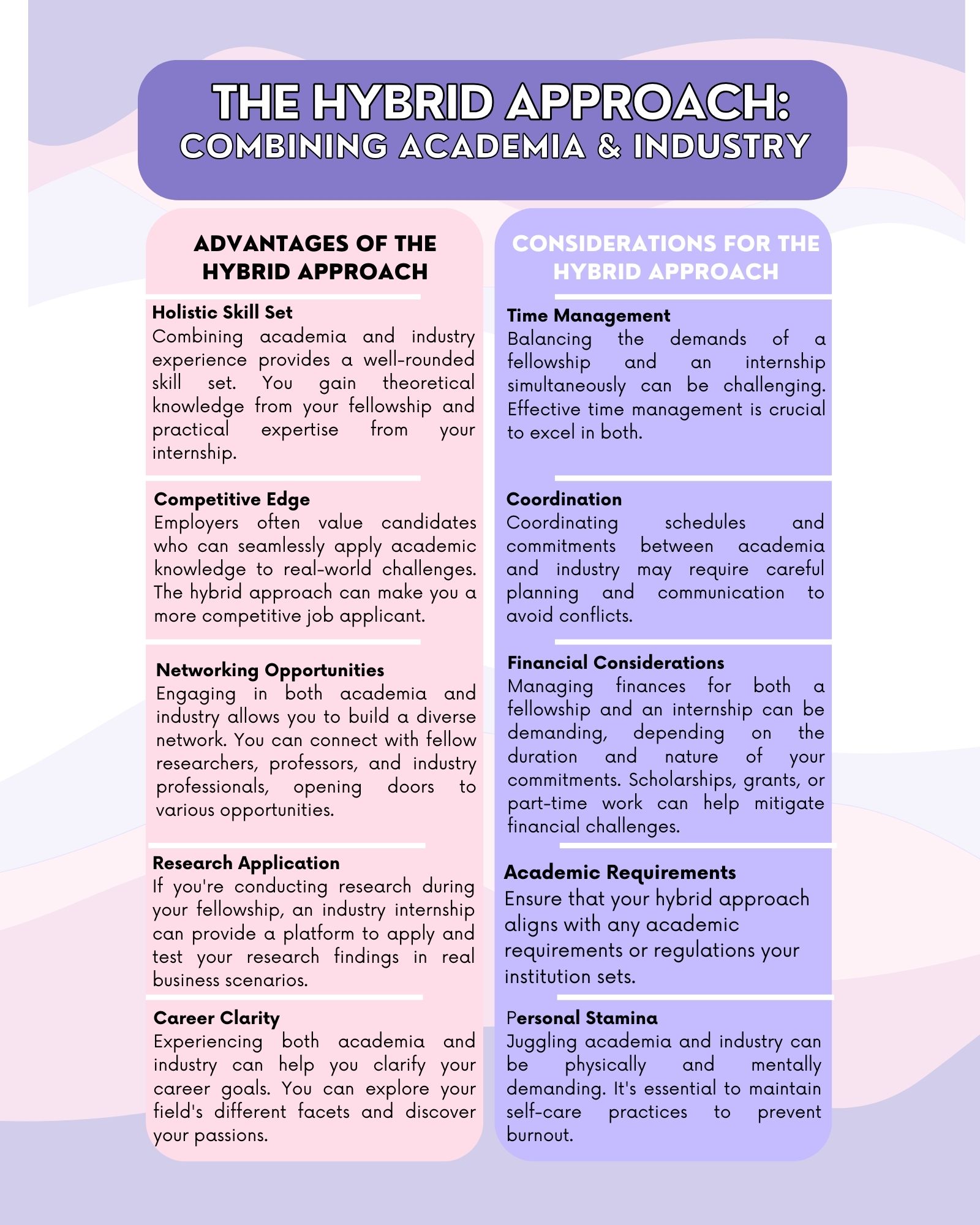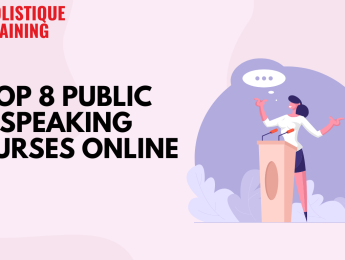- Table of Contents
- Introduction
- Understanding Fellowship Programmes
- The Fellowship Experience
- Fellowship Opportunities and Duration
- Demystifying Internship Programmes
- The Internship Experience
- Unlocking the Potential of Internships
- Key Differences Between Fellowship and Internship Programmes
- Focus and Purpose
- Duration
- Entry Requirements
- Mentorship and Support
- Financial Considerations
- How to Know Which Programme Is Better for Me
- Career Aspirations
- Learning Objectives
- Time Commitment
- Financial Considerations
- Networking Opportunities
- Why You Should Opt for Training Programmes and Courses Instead
- Specialised Skill Development
- Flexibility and Customisation
- Diverse Learning Opportunities
- Networking and Mentorship
- Demonstrated Commitment
- Virtual Internships in the Digital Age
- Benefits of Virtual Internships
- Challenges of Virtual Internships
- Social Impact Fellowships
- The Impact of Social Impact Fellowships
- Challenges and Considerations
- The Hybrid Approach: Combining Academia and Industry
- Advantages of the Hybrid Approach
- Considerations for the Hybrid Approach
- Conclusion
Introduction
In today's competitive job market, gaining practical experience and expanding one's network have become essential steps towards a successful career. Two popular avenues for students and recent graduates to acquire such expertise are fellowship and internship programmes. While both options provide valuable learning opportunities, it's essential to understand their key differences and determine which programme aligns better with your goals and aspirations. This comprehensive guide will delve deep into the nature of fellowship and internship programmes, highlight their distinctive features, and guide you in choosing the programme that best suits your needs.
Understanding Fellowship Programmes
A fellowship programme is a structured learning experience that typically targets individuals pursuing advanced degrees or early-career professionals. It is designed to provide participants with specialised knowledge, mentorship, and the opportunity to engage in research or projects in their field of interest. Academic institutions, research organisations, think tanks, non-profit organisations, and government agencies often offer fellowships. They can span various durations, ranging from a few months to several years.
The Fellowship Experience
Fellowships are known for their focus on personal and professional development. Participants are selected based on their academic achievements, research potential, and passion for the subject matter. Fellows receive guidance and mentorship from experienced professionals in their field, allowing them to deepen their knowledge, gain practical skills, and contribute to meaningful projects. Many fellowships also provide financial support through stipends or scholarships to cover living expenses, research costs, or tuition fees.
To illustrate the significance of fellowships, let's look at the prestigious Fulbright Scholarship programme, which the U.S. Department of State offers. Fulbright Scholars, chosen through a rigorous selection process, spend an extended period of time in a foreign country, immersing themselves in the culture and conducting research or teaching. This experience enhances their academic credentials and fosters cultural exchange and understanding.
Fellowship Opportunities and Duration
Fellowships come in various shapes and sizes. Some focus on scientific research, while others delve into policy analysis or social entrepreneurship. The duration of fellowships can vary significantly, allowing participants to choose an option that aligns with their goals. For example, a short-term fellowship might last only a few months, making it suitable for individuals with limited time availability. In contrast, long-term fellowships can span several years, providing a more in-depth learning experience.
Demystifying Internship Programmes
On the other hand, an internship programme is a short-term work experience typically undertaken by students or recent graduates. It offers a hands-on learning opportunity in a specific industry or organisation. Internships are in various sectors, including business, technology, healthcare, media, and non-profit organisations. They provide participants with practical skills, industry exposure, and the chance to build a professional network.
The Internship Experience
According to the National Society of Colleges and Employers (NSCI), a staggering 67.9% of students enrol in internship programmes to acquire the necessary experience in a specific field. This statistic highlights internships' crucial role in bridging the gap between academic knowledge and real-world application.
Interns vary in duration, with some lasting a few weeks during summer breaks and others extending up to a year. Depending on the organisation and local labour laws, they can be paid or unpaid. Interns are usually assigned tasks and projects related to their field of study or career interests. They work closely with professionals in the organisation, receive feedback on their performance, and gain firsthand experience in their chosen industry.
Unlocking the Potential of Internships
Internships, often viewed as a stepping stone to a full-fledged career, offer several advantages. They allow participants to:
- Gain exposure to their chosen industry and build a professional network.
- Apply classroom knowledge to real-world scenarios.
- Develop a strong work ethic and learn to adapt to professional settings.
- Understand the dynamics of different job roles within an organisation.
To better appreciate the significance of internships, let's examine the experience of a technology intern at a leading software company. While working alongside seasoned engineers, this intern was exposed to cutting-edge technology, learned to code professionally, and contributed to developing a widely used software application. Such experiences can be transformational, helping interns refine their career goals and build a portfolio of practical achievements.
Key Differences Between Fellowship and Internship Programmes
Now that we have a comprehensive understanding of both fellowship and internship programmes, let's delve into the key differences that set them apart:
Focus and Purpose
Fellowships emphasise research, advanced study, and personal development. They allow participants to engage in in-depth research, contribute to scholarly work, or develop expertise in a specific area. On the other hand, internships focus on practical experience and exposure to a particular industry or job function. They aim to equip participants with skills that can be applied directly in the workplace.
Duration
Fellowships are generally longer in duration compared to internships. While internships typically last a few weeks to a year, fellowships can extend for months or even years. The longer duration of fellowships allows participants to delve deeper into their subject area, explore complex issues, and make substantial contributions to their field.
Entry Requirements
Fellowships often have competitive entry requirements, targeting individuals with a strong academic background and research potential. Applicants are expected to demonstrate a deep interest in the subject matter and showcase their ability to contribute to the programme's goals. On the other hand, internships usually have less stringent requirements, making them more accessible to a broader range of students and recent graduates.
Mentorship and Support
Fellowships generally provide a higher level of mentorship and support compared to internships. Fellows work closely with experienced professionals who guide them through their research or projects. They receive feedback, participate in workshops or seminars, and benefit from a supportive community of fellow researchers. Internships, while still offering mentorship to some extent, often focus more on practical tasks and day-to-day work responsibilities.
Financial Considerations
Fellowships often provide financial support to participants in the form of stipends or scholarships. This financial assistance helps cover living expenses, research costs, and tuition fees. On the other hand, Internships may or may not offer monetary compensation. Paid internships are more common in certain industries, such as finance or technology, while unpaid internships are prevalent in sectors like media or non-profit organisations.
To provide a clearer perspective, let's create a table summarising the key differences between fellowship and internship programmes:
Aspect | Fellowship | Internship |
Focus and Purpose | Research and personal development | Practical experience in an industry |
Duration | Longer (months to years) | Shorter (weeks to a year) |
Entry Requirements | Competitive, strong academics | Less stringent, broader access |
Mentorship and Support | Extensive mentorship | Moderate mentorship |
Financial Considerations | Often provide stipends/scholarships | May or may not offer compensation |
Table 1: The key differences between fellowship and internship programmes
How to Know Which Programme Is Better for Me
When deciding between a fellowship and an internship, it's essential to consider your goals, interests, and future career plans. Here are some key factors to help you make an informed decision:
Career Aspirations
Consider your long-term career goals and the skills and experiences required to achieve them. A fellowship may be more suitable if you are interested in pursuing research, academia, or specialised roles in your field. On the other hand, if you aim to gain hands-on industry experience, explore different job functions, or build a broad professional network, an internship might be the better choice.
Learning Objectives
Think about the specific knowledge and skills you want to acquire. Fellowships offer a focused and intensive learning experience that allows you to delve deep into your area of interest. On the other hand, internships provide a broader exposure to a particular industry or job function, allowing you to develop a range of transferable skills.
Time Commitment
Consider your availability and the amount of time you can dedicate to the programme. Fellowships often require a significant time commitment, which may not be feasible if you have other responsibilities or commitments. Internships, especially shorter ones, offer more flexibility in terms of duration and can be easier to accommodate alongside other activities.
Considerations | Fellowships | Interneship | Training Program |
Career Focus | Specilisation | Industry Exposure | Skill Development |
Duration | Long-term | Short to Medium-term | Flexible |
Financial Support | Stipends/Scholarships | Paid/Unpaid | Tuition/Costs |
Mentorship & Networking | High mentorship | Moderate mentorship | Networking |
Job Prospects | Academic/Specialised | Industry-specific | Skill-based |
Social Impact Potential | Varies | Potential | Skill-based |
Table2: Differences between Fellowships, Internships and training program
Financial Considerations
Evaluate your financial situation and determine whether you need financial support during the programme. Fellowships that provide stipends or scholarships can help alleviate financial burdens and allow you to focus on your research or projects. If financial compensation is important to you, explore internships that offer paid positions or consider seeking external funding sources.
Networking Opportunities
Consider the networking opportunities provided by each programme. Fellowships often offer a community of scholars or professionals in your field, allowing you to build lasting connections and collaborations. Internships, especially those in well-established organisations, provide access to a broad network of professionals who can offer mentorship, guidance, and potential job opportunities in the future.
Why You Should Opt for Training Programmes and Courses Instead
While internships provide valuable hands-on experience, there are instances where investing in training programmes and courses may be a more beneficial choice. Here's why:
Specialised Skill Development
Training programmes and courses are designed to offer in-depth and specialised skill development in a specific field or area of interest. Unlike internships, which provide broader exposure, training programmes allow you to focus on acquiring specific skills that are highly sought after in the industry. These programmes often provide a comprehensive curriculum and expert instruction, enabling you to gain a competitive edge in your chosen field.
Flexibility and Customisation
Training programmes and courses offer greater flexibility in terms of timing and duration. Unlike internships, which typically have fixed schedules, training programmes often allow you to choose from various options, including part-time, online, or self-paced learning. This flexibility lets you balance your other commitments while investing in your professional growth.
Diverse Learning Opportunities
Training programmes and courses provide access to various learning resources, including lectures, workshops, case studies, and interactive exercises. These resources are carefully curated to provide comprehensive knowledge and practical application of concepts. Additionally, training programmes often leverage the expertise of industry professionals, allowing you to learn from their experiences and gain insights into real-world scenarios.
Networking and Mentorship
Training programmes and courses also offer networking and mentorship opportunities. Through these programmes, you can connect with like-minded professionals, industry experts, and potential mentors who can guide you in your career. These connections can be valuable for future collaborations, job prospects, and obtaining guidance from experienced professionals.
Demonstrated Commitment
Investing in training programmes and courses showcases your commitment to continuous learning and professional development. Employers value individuals actively seeking opportunities to enhance their skills and stay updated with industry trends. By investing in training programmes, you demonstrate a proactive approach to your career growth and showcase your willingness to invest time and resources in your own success.
While internships provide practical experience and industry exposure, training programmes and courses offer a more focused and specialised approach to skill development. It's important to assess your career goals, learning objectives, and the specific skills you wish to acquire when deciding between an internship and a training programme. In some cases, combining both experiences can provide a well-rounded skill set and enhance your overall career prospects. Ultimately, the decision should be based on what aligns best with your long-term aspirations and personal growth.
Virtual Internships in the Digital Age
In recent years, the rise of remote work and digital technologies has given birth to a new breed of internships—virtual internships. In fact, according to LinkedIn, virtual internships experienced a 200% increase in demand over the past five years. These opportunities allow participants to work from anywhere worldwide, breaking down geographical barriers and providing access to a global talent pool.
Benefits of Virtual Internships
Global Reach
Virtual internships open doors to companies and organisations around the world. This means you can work with cutting-edge startups in Silicon Valley, global non-profits, or renowned research institutions, all without leaving your home.
Flexibility
The flexibility of virtual internships is a significant advantage. You can often choose your working hours, which allows you to balance work with other commitments such as coursework or family responsibilities.
Diverse Teams
Remote work promotes diversity and inclusion. Virtual internships often involve collaborating with colleagues from various backgrounds, providing a rich learning experience in cross-cultural communication and teamwork.
Cost Savings
Eliminating the need for commuting or relocating can result in cost savings for participants. This is particularly beneficial for students or individuals on a tight budget.
Technological Exposure
Virtual internships inherently require proficiency in digital tools and communication platforms. This exposure to tech-savvy work environments can enhance your digital literacy and remote collaboration skills.
Challenges of Virtual Internships
Communication Barriers
Effective communication can be challenging in virtual settings. Clear and timely communication becomes crucial, and participants must adapt to different time zones and communication tools.
Loneliness and Isolation
Working remotely can be isolating, and participants may miss out on the camaraderie and social aspects of in-person work environments. It's essential to seek social interactions proactively.
Self-Motivation
Remote work demands a high level of self-discipline and motivation. Without direct supervision, participants must manage their time and tasks effectively.
Digital Fatigue
Spending long hours in front of screens can lead to digital fatigue. It's important to take breaks and manage screen time to prevent burnout.
Limited Hands-On Experience
Some internships may require physical presence or hands-on work that is difficult to replicate virtually. Consider the nature of the role when opting for a virtual internship.
Social Impact Fellowships
Social impact fellowships offer a compelling path for individuals passionate about creating positive social change. These fellowships focus on addressing pressing societal issues, such as poverty alleviation, environmental conservation, and healthcare access. Participants in social impact fellowships often work with non-profit organisations, grassroots initiatives, or governmental agencies dedicated to making a difference in their communities.
The Impact of Social Impact Fellowships
Addressing Critical Issues
Social impact fellowships allow participants to contribute directly to addressing critical societal issues. Whether it's working on clean water projects in developing countries or advocating for social justice, these fellowships offer a sense of purpose and fulfilment.
Community Engagement
Many social impact fellowships involve close interaction with local communities. This hands-on engagement provides a unique opportunity to understand the challenges and needs of the communities being served.
Skill Development
Beyond the immediate impact, participants in social impact fellowships gain valuable skills in project management, community development, advocacy, and public policy, which are highly transferable to various careers.
Building a Meaningful Network
Engaging in social impact work allows individuals to connect with like-minded peers, mentors, and leaders in the non-profit and social entrepreneurship sectors. These connections can be instrumental in future career endeavours.
Personal Growth
The experience of working on meaningful projects in challenging environments fosters personal growth, resilience, and a deeper understanding of global issues.
Challenges and Considerations
Resource Constraints
Non-profit organisations often operate on limited budgets. As a result, participants may face resource constraints, impacting project scope and execution.
Emotional Toll
Dealing with complex societal issues can be emotionally taxing. Participants must be prepared to cope with the emotional toll of their work and seek support when needed.
Long-Term Sustainability
Some social impact initiatives may struggle with long-term sustainability. Therefore, it's essential to assess the project's viability and potential for lasting impact.
Navigating Bureaucracy
Participants may encounter bureaucratic hurdles that can slow down progress when working with governmental agencies. Patience and effective advocacy skills are valuable in such situations.
Adapting to Local Contexts
Working in diverse communities requires cultural sensitivity and adaptability. Participants must be open to learning from local perspectives and customs.
The Hybrid Approach: Combining Academia and Industry
Some individuals find that a combination of fellowship and internship experiences can be the most enriching. For instance, pursuing a fellowship to deepen their academic knowledge and then following it up with an internship in a relevant industry allows them to bridge the gap between theory and practice. This hybrid approach can be particularly advantageous for those aspiring to become experts in their field while staying attuned to the latest industry trends and demands.

Advantages of the Hybrid Approach
Holistic Skill Set
Combining academia and industry experience provides a well-rounded skill set. You gain theoretical knowledge from your fellowship and practical expertise from your internship.
Competitive Edge
Employers often value candidates who can seamlessly apply academic knowledge to real-world challenges. The hybrid approach can make you a more competitive job applicant.
Networking Opportunities
Engaging in both academia and industry allows you to build a diverse network. You can connect with fellow researchers, professors, and industry professionals, opening doors to various opportunities.
Research Application
If you're conducting research during your fellowship, an industry internship can provide a platform to apply and test your research findings in real business scenarios.
Career Clarity
Experiencing both academia and industry can help you clarify your career goals. You can explore your field's different facets and discover your passions.
Considerations for the Hybrid Approach
Time Management
Balancing the demands of a fellowship and an internship simultaneously can be challenging. Effective time management is crucial to excel in both.
Coordination
Coordinating schedules and commitments between academia and industry may require careful planning and communication to avoid conflicts.
Financial Considerations
Managing finances for both a fellowship and an internship can be demanding, depending on the duration and nature of your commitments. Scholarships, grants, or part-time work can help mitigate financial challenges.
Academic Requirements
Ensure that your hybrid approach aligns with any academic requirements or regulations your institution sets.
Personal Stamina
Juggling academia and industry can be physically and mentally demanding. It's essential to maintain self-care practices to prevent burnout.
Conclusion
Both fellowship and internship programmes offer valuable learning experiences and can significantly contribute to your personal and professional development. The choice between the two ultimately depends on your career goals, learning objectives, time availability, financial considerations, and networking preferences. Consider these factors carefully, weigh the pros and cons of each option, and make an informed decision that aligns with your aspirations. Remember, there is no definitive answer to whether fellowship or internship is better—it's about choosing the path that best suits your individual needs and ambitions. If you need help deciding which path suits you best, feel free to contact us, and we'll give you our honest opinion, depending on your needs!
























